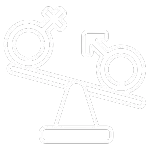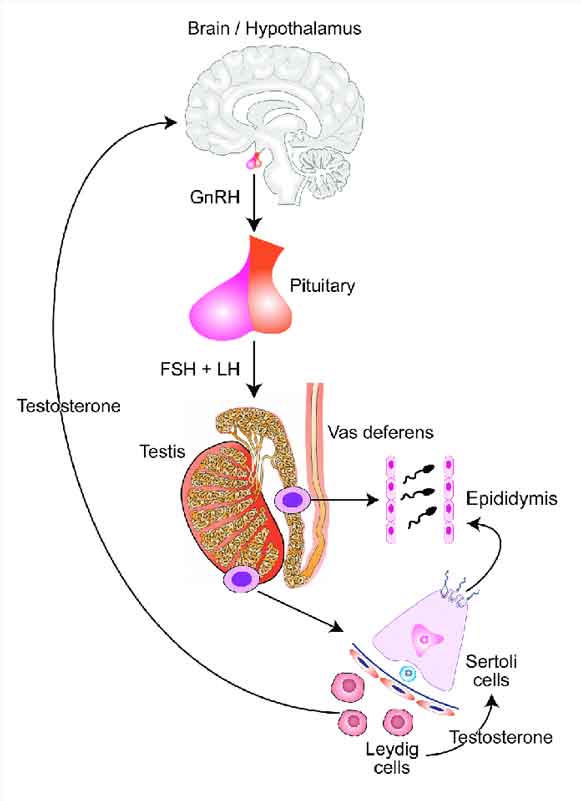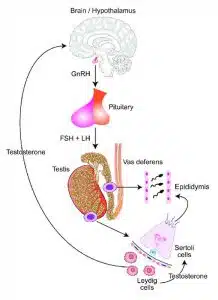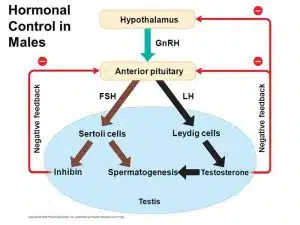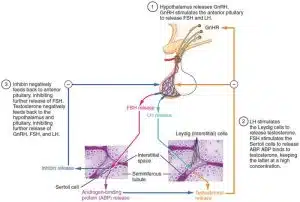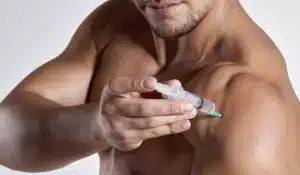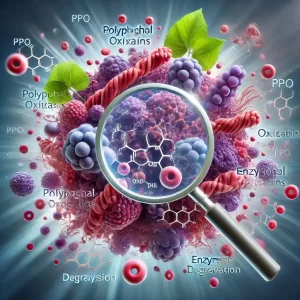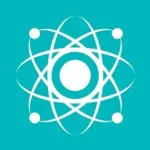As of March 2020, per decree by the US Food and Drug Administration (FDA), pharmacies can no longer legally compound human chorionic gonadotropin (HCG). Regulatory authorities in Florida and across the US had long sought a ban on HCG, with the recent ruling by the FDA signaling a victory.
Testosterone replacement therapy (TRT) providers have historically used HCG as an adjunct (add-on) therapy to testosterone. This is because the glycoprotein hormone is known to mimic the effects of luteinizing hormone (LH) and the follicle-stimulating hormone (FSH).
Since the HCG ban, hormone replacement therapy (HRT) industry leaders have taken a greater interest in kisspeptin-10. Kisspeptin is a powerful neuropeptide hormone, as a prospective replacement for HCG in male hormone replacement therapy (HRT).
Research has demonstrated kisspeptin-10’s ability to boost LH secretion in men. Thus, it may aid in sustaining elevated testosterone levels.
Here is everything you need to know about kisspeptin-10, its role in TRT, and why supplementation with the hormone is worth including in your TRT regimen.
The HPG Axis and the Hormonal Feedback Loop: Critical Interactions Between Men’s Hormones
The hypothalamus-pituitary-gonad axis (HPG axis), a network of hormones and glands, regulates the flow of reproductive hormones throughout the body. It achieves this through a native biofeedback loop. Endocrinologists have described kisspeptin-10 as a “crucial regulator” of the HPG axis.
Source: John Reynolds-Wright
Gonadotropin-releasing hormone (GnRH) is regularly released by the hypothalamus in healthy people. From there, it travels along the hypophyseal portal system until it reaches the anterior pituitary. There, it connects with its receptor site (GnRHR). In turn, the interaction between the GnRH hormone and its receptor site catalyzes the synthesis and release of follicle-stimulating hormone (FSH) and luteinizing hormone (LH).
Falling FSH and LH Levels in Aging Men
If you’re a man over 40, chances are good that you need more FSH and LH for maximum testosterone. Testosterone is the main male sex hormone and the holy grail of improved vitality in aging men
LH ups the secretion of testosterone through its stimulation of the Leydig cells.
In healthy men, the negative feedback loop is closed when the sex hormones slow the release of (GnRH). In consequence, the relevant hormone levels remain in balance.
The Potential Therapeutic Benefits of Kisspeptin for Men’s Hormonal Feedback Loop
This is where Kisspeptin has enormous potential to augment the progress made in testosterone replacement therapy (TRT). It does so by supporting a normal hormonal feedback loop.
TRT regimens – especially ones performed by underqualified, inexperienced providers – carry the potential to dangerously disrupt the delicate hormonal ecosystem inside the body. If done incorrectly it is possibble to distort HPG axis feedback loops.
Source: OpenStax, Anatomy and Physiology of the Male Reproductive System
Men undergoing unbalanced TRT programs may experience unhealthy drops in both LH and FSH. This happens because the exogenous testosterone they receive acts — through the negative feedback loop described earlier — to slow their release.
These potential disruptions to the negative feedback loops induced for TRT demonstrate the absolute necessity of regularly monitoring all hormone levels throughout therapy. (Not just testosterone levels).
Following kisspeptin-10 administration, men reliably see significant increases in circulating levels of luteinizing hormone (LH) and follicle-stimulating hormone (FSH). This is due to its clinical function as an “upstream stimulator of gonadotrophin releasing hormone (GnRH) neurons.”
Hypogonadism, TRT, and Kisspeptin-10
Kisspeptin-10’s benefit of increased LH concentrations in the blood can mitigate one of the common side effects of poorly-performed TRT . “Testicular atrophy” is a condition in which the testicles shrink due to the unbalanced endocrine system.
This phenomenon is caused by a reduction in the pulse frequency of LH, which is itself caused by the inhibited production of GnRH that often occurs in therapy. In the absence of GnRH, LH production by the pituitary gland ceases, LH levels drop. In turn, testosterone levels drop (signaling hypogonadism), and any achievements made thus far in therapy are reversed.
The good news is that disruptions to the hormonal feedback loop caused by TRT are largely avoidable with a number of preventative measures. This is including but not limited the administration of kisspeptin-10 alongside TRT (potentially).
Kisspeptin-10 as a Supplemental Therapy Alongside TRT
Through its work of optimizing FSH and LH levels, kisspeptin-10 may serve as an effective replacement tool for HCG to stabilize the HPG hormonal feedback loop.
Ideally, the patient will take his kisspeptin-10 dosage concurrently with TRT, typically 2-3 times per week with a standard injection of .1-.2mL per injection at each interval.
How to Determine the Optimal Kisspeptin-10 Dose
Before determining a dosing schedule with Kisspeptin-10, you should perform blood work to measure your current FSH and LH levels. A properly titrated dosage protocol can then be developed.
Simple and affordable blood tests (many available directly to patients from reputable online vendors) can accurately pinpoint your current levels, which is important for formulating a therapy plan moving forward.
Interpreting the results of a standard FSH and LH blood test is straightforward. The results will provide a figure that shows “X number of milli-international units per milliliter (mIU/mL)” – for example, “2.7 mIU/mL.”
Next, determine if your levels of LH and FSH are sufficient or if you require supplementation. Compare the number in your results to the “reference ranges” below that show normal levels of the hormones in healthy people:
- Normal reference range for LH: 1.7−8.6 (mIU/mL)
- Normal reference range for FSH: 1.5 to 12.4 mIU/mL
Consult With the Vitality Sciences Experts To Protect Your Hormone Health
To protect your health, consulting with hormonal therapy experts before beginning any type of HRT is essential. As with any therapy, you and your provider must be diligent to achieve the best possible outcome.
Vitality Sciences, located in Palm Beach Gardens, FL, is the industry leader in high-quality, safe hormone therapy, including testosterone replacement therapy (TRT).
Throughout the course of TRT, it’s absolutely essential that you maintain your follicle-stimulating hormone (FSH) and luteinizing hormone (LH) levels. This is in order to avoid the pitfalls of a disrupted hormonal feedback loop.
When properly administered as an adjunct therapy, kisspeptin-10 protects hypothalamus-pituitary-gonad axis (HPG axis) function during therapy. In addition, it helps to ensure the smooth delivery of results in the form of sustainably elevated testosterone levels.
